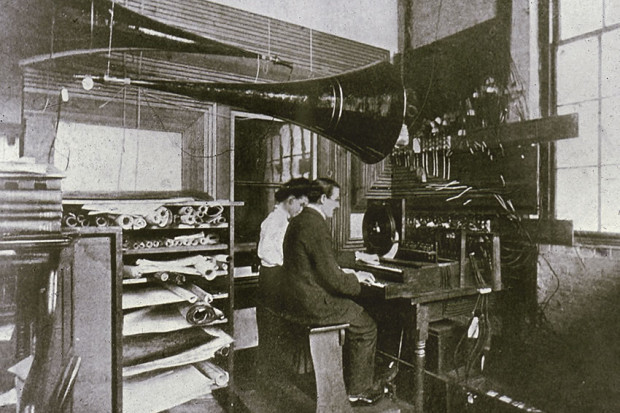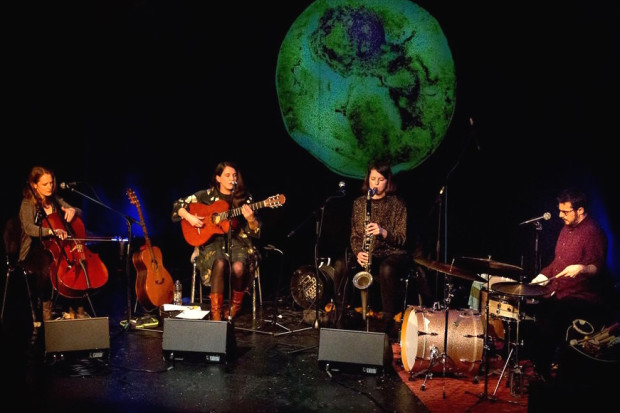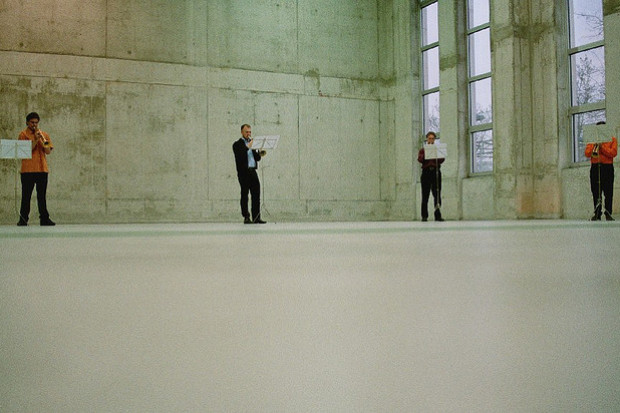Editorial: An Intellectual Movement
I was very interested to read the interview with six Irish twenty-something composers that appeared in the February issue of New Music News (the Contemporary Music Centre’s newsletter). Whenever I see articles like this I can’t help but wonder if I’ll perhaps be struck by a radical new idea, or be clued in to a new cultural, artistic or intellectual movement that is evolving from my very own generation. How proud and excited I would be! In reality, such revelations just don’t seem to occur. Granted, this article, which was written by Michael Dungan, was not meant to be that type of exhaustive interrogation from which you might draw a concrete conclusion, but there was still little in these composers’ views to contest the generally uninspiring assessments of ‘what young people think’ that appear regularly in the media.
In general, most of the interviewees agreed that this is a good time for composers and composition in Ireland, that Irish audiences, thanks to various arts initiatives, are accepting of and interested in new music, that the economic boom has helped, that their third-level music studies abroad are beneficial to them, that there is great diversity amongst the composers of Ireland both young and old, and that there probably is an aspect of Irishness about their music, but they don’t really like to get into that.
The most intriguing comment came from Ed Bennett (born in 1975) who felt that, ‘Because tradition has caused so much trouble in this country, I don’t really want to have anything to do with it. And that has affected my music, because tradition is always used as an excuse for wrongdoing. I feel that that has affected me greatly. I don’t really like delving into the past if possible.’
This is a rather dubious interpretation of the Northern Ireland conflict, but nonetheless, Bennett is not alone in his antipathy towards the past. Indeed, I would suggest that a majority of twentysomethings in Ireland, particularly in the south, would carry a similar sentiment around. Why? Thirty years of war in the north hasn’t helped, but it is more the resulting association of ‘Irishness’ with ‘nationalism’ with ‘all things violent, archaic and pigheaded’ that has done the real damage, and that is the work of the state and the media, fuelled by a blizzard of neuroticism from a battered nation. It is, I think, because of this legacy that, from time to time, you see young Irish men and women appear on the Late Late Show snarling at the Irish public, telling their elders they have left our generation with nothing. The shocked elders’ reply is, of course, ‘But you have everything!’
And we do have almost everything, and if only Irish society was to call time now I’m sure we could calmly put together a decent enough philosophy to allow young and old find meaning in wandering Ireland. But things aren’t slowing down. Tension is increasing. Lives are filled with anxiety. Where can they turn? They certainly won’t turn to Ireland, for we as a generation now see the past as of no real help; religion, nationalism, fanaticism, suppression - they could only get in our way these days! The demand for unobstacled personal freedom (lest we end up like our strangled elders), and nervousness about being too rooted (for fear we’ll be left behind by our fast-moving world), has meant we are only barely acquainted with our past. The aesthetics of Irishness become useful in promoting ourselves abroad, and even at home we may flirt with its good name, but there is little beneath all that. We are a mass of floating funlovers - cast off from Ireland the day we were born.
One might expect that this loss, and our rootless condition generally, even if it is skirted around in public discourse, would create a poignancy in the domain of artistic expression, but as long as my generation adheres to the message of ‘Irish past not needed’, there is, naturally enough, no collective acknowledgement in works of art or intellect that will prod at the absence of our past and the repercussions of that.
It is underestimated how little of their past this generation hold in their hearts. Observations from commentators professing that Ireland has rarely before expressed its Irishness with such vigour just don’t add up. For me, and I’m sure for many more, too much contemporary cultural expression, and the analysis of that creativity, is just not hitting the spot. Young artists seem to have so many easy answers, but no heavy questions. We have the glamour of rootlessness down to a tee, with much talk of ‘cosmopolitanism’ and ‘openness to ideas’, but we don’t approach the despair that underlines life in the non-Irish entity.
This actually continues to surprise me. Without, I hope, being too foolishly optimistic, I do presume that many of my generation are starved intellectually in the present climate, and are gradually resorting to some very real and eyeopening questioning of their society. There is simply no way that they could continue as they are. Actually, John Waters, writing in 1997, predicted something similar and suggested that the ‘moment of maximum opportunity’ may occur in the first few years of this millennium when there is the danger of the Irish and world boom economies grinding to a halt: ‘a whole generation of young people would be stranded in Ireland, and would be forced to begin interrogating its society in the most rigorous manner.’
One of the first issues young Irish artists will have to embrace is that something that, through state and media osmosis, they have become not very fond of - the past. For my own part, I hope it will be recognised that what we require is a great intellectual movement, a rethinking and reinvigorating of Ireland’s condition that summons up the energy, passion and affection of all our young intellects and artists. No one else has the power to pull the reins in on runaway Ireland but those young people whose energy is fuelling it. If nothing else, our intellectual movement would be an exercise in empowerment.
I also hope that if this comes about, it will become obvious that such movements are not unprecedented in Ireland, that intellectual movements have come and gone before and, each time, brought Ireland further towards cultural and political independence and thus real human freedom.
There is no shame in a generation having continuity with its past. Continuity does not mean we will continue at war with our neighbours. It does mean, however, that we will have less fatalism and more alternatives, that we will not feel that the past is a failed project that we cannot look to and that we must now live and work within the cultural and intellectual perimeters of Celtic Tiger Ireland, because, frankly, we can’t do it. There is no humanity in a future whose past is only ten years old. Unless this generation can rethink this new Ireland so that it has continuity with the past, so that it is more intelligible and identifiable as part of the Irish nation’s history, they will lose interest in the future completely, and you can begin to read about the repercussions of that in your daily newspaper right now.
–
First published in JMI: The Journal of Music in Ireland, Vol. 1 No. 3 (March–April 2001), pp. 3–4.
Published on 1 March 2001
Toner Quinn is Editor of the Journal of Music. His new book, What Ireland Can Teach the World About Music, is available here. Toner will be giving a lecture exploring some of the ideas in the book on Saturday 11 May 2024 at 3pm at Farmleigh House in Dublin. For booking, visit https://bit.ly/3x2yCL8.












